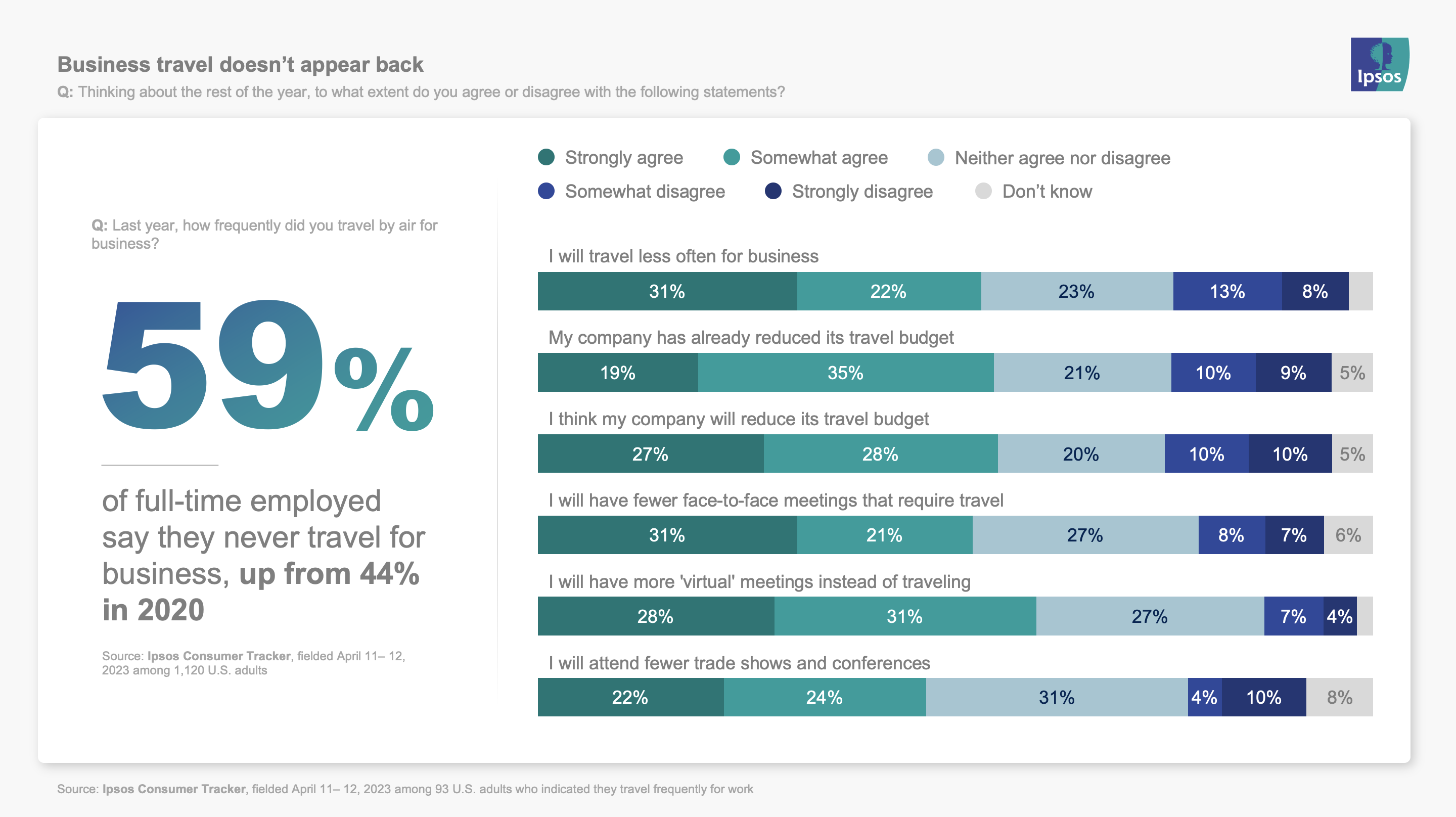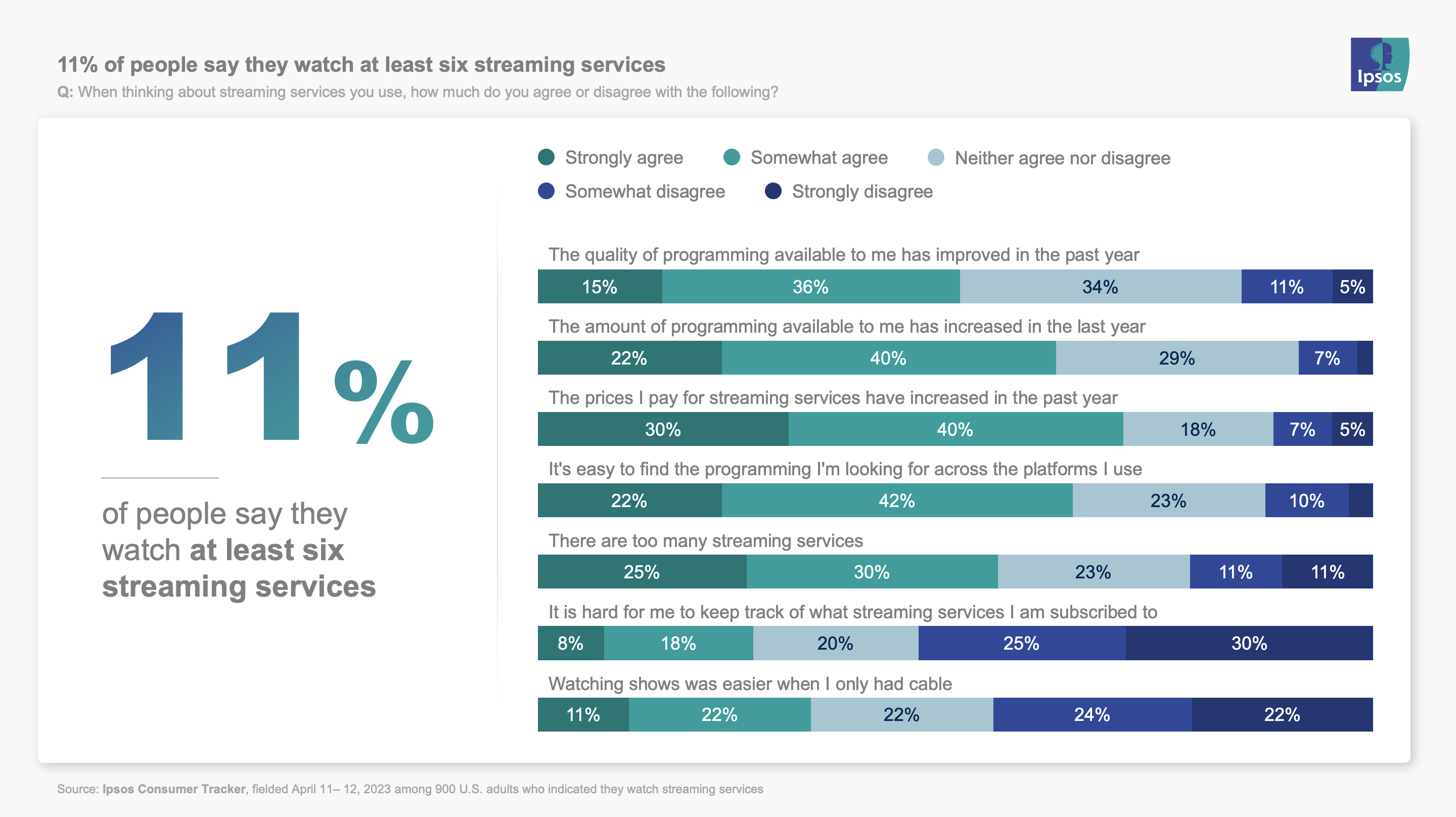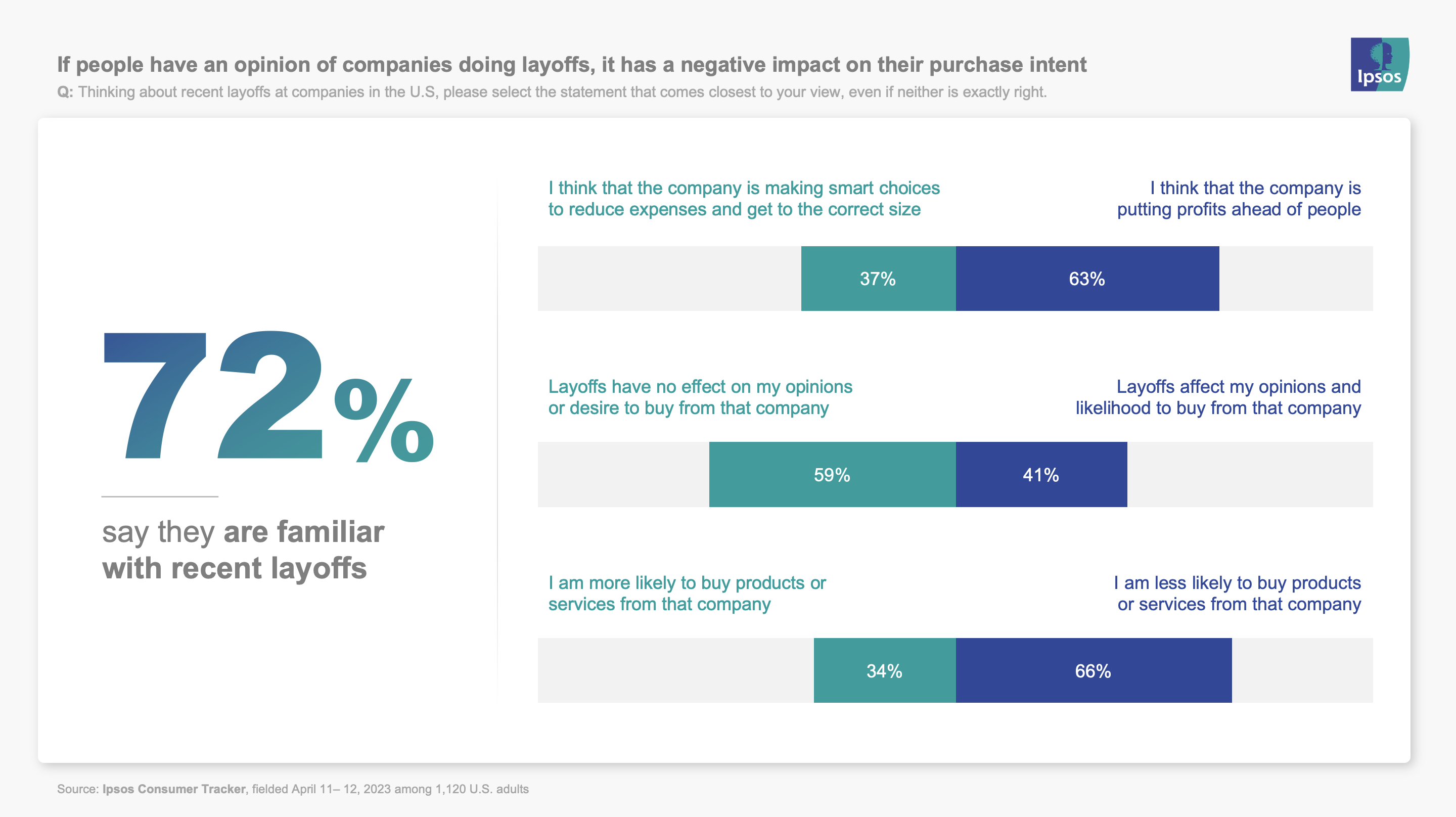Business travel isn’t bouncing all the way back
Here’s what we know today about AI, streaming, business travel and more from the Ipsos Consumer Tracker:
Business travel does not appear back
Why we asked: It’s been a while since we checked in on the business travel crowd. Now we have the trifecta issues of post-pandemic life, fewer people in offices to travel to, and budget cuts.
What we found:
There’s been an uptick in full-time employed people who say they never travel for work (59%) vs. when we asked early in the pandemic about their pre-pandemic routines (44%).
- For those that do travel frequently, the outlook is mostly consistent then and now. More than half (55%) say they will travel less for business or go to fewer trade shows and conferences. A similar number think companies will reduce travel budgets.
- This wave we asked if that’s already happened and 54% say that yes, travel budgets have been cut already.

Most streaming watchers feel prices are going up and quality is holding
Why we asked: The streaming marketplace is a different world than it was in the pandemic era. Networks and platforms are adapting to a world where, in the words of Warner Bros. Discovery CEO David Zaslav, “The grand experiment of creating something at any cost is over.” But are consumers noticing any changes?
What we found: Not really, no. If anything, they think things are still very much in the golden age.
- All but 17% of folks say they watch streaming, whether paid or free. Most (73%) watch between one and five services. But 11% watch six or more.
- Half of viewers say programing has improved in the past year and 62% say there are more shows available to them.
- But 69% are feeling the price increases. About half (54%) say there are too many services. Very few disagree, while a plurality in many cases neither agree nor disagree.
But relatively small numbers say it’s hard to keep track of what shows are where (25%) or think that it was easier to just watch cable (33%) – there’s a predictable age skew there. All of this reads like good news for the streaming services that so far, consumers are sticking with and not looking to cut the wireless cord. That said…

People are really interested in streaming bundles
Why we asked: If people have that many streaming services, do they want to simplify that?
What we found: The concept of “re-bundling” isn’t new. We actually surveyed this question almost exactly two years ago. But a high – and growing – number say they would be interested in having their streaming services bundled. Seven in ten, including 26% “very” interested, want to have one monthly or annual payment, up from 58% in 2021.
The AI “Bill of Rights” proposed by the White House is hitting the mark
Why we asked: The White House has proposed a blueprint “Bill of Rights” for AI. We were curious if people agreed with these rights, which seemed pretty on the mark to this author. So we broke the document into several buckets: discriminating or showing bias and not doing harm; that the output or outcome is clear and easy to understand; that you know how your data is being used and that it’s kept secure; that you can opt-out of AI tools and hold their creators accountable.
What we found: Overall, people find everything proposed to be very or somewhat important. There are some notable differences if you just look at the “very important” line.
- People are less concerned (32%) that they know how it works and (perhaps oddly) that the output is easy to understand (49%) and clear.
- They are very concerned about data being kept private (64%) and that the AI doesn’t cause harm to people or groups (61%). Mostly people think all of these topics are important.
Of course, I also asked ChatGPT 4.0 what it thought and likewise, it agreed. “The proposed AI Bill of Rights appears to address various concerns related to the use of AI and automated systems.”
Here’s the kicker. All I asked it was if it thought the text of the proposal was fair. And despite leading with, “As an AI language model, I don't have personal opinions or feelings,” it added without further prompting, “It is important to note that the effectiveness of this AI Bill of Rights will depend on its implementation, enforcement, and adaptation to the rapidly evolving field of AI. A continuous review and update of these principles and practices will be essential to ensure that they remain relevant and effective in addressing emerging challenges and concerns related to AI technologies.”

If people have an opinion of companies doing layoffs, it has a negative impact on their purchase intent
Why we asked: The news is a constant stream of high-profile companies doing sizeable layoffs. But to what extent do people care as shoppers?
What we found:
- Most Americans (72%) are aware of the layoffs going on. But when asked a series of forced-choice (either/or) questions, people are more likely to think that companies are putting profits ahead of staff (63%) than making smart financial decisions (37%.)
- Only 41% say that layoffs impact their opinions of the company or likelihood of buying.
- But when forced to choose between being more likely or less likely, two in three (66%) say that they are less likely to buy from companies that are doing layoffs.
So a sizeable minority care about the layoffs and most feel negatively about companies that are doing them.

Signals
Here’s what we’re reading this week that has us thinking about the future.
- AI and wrongful convictions (via NYT)
- Artificial wombs and the future of abortion (via Wired)
- GM kills Carplay in EVs– and choice? (via ArsTechnica)
- Why platforms are removing streaming shows (via Planet Money)
For complete toplines for all waves, please see the full data and methodology.

